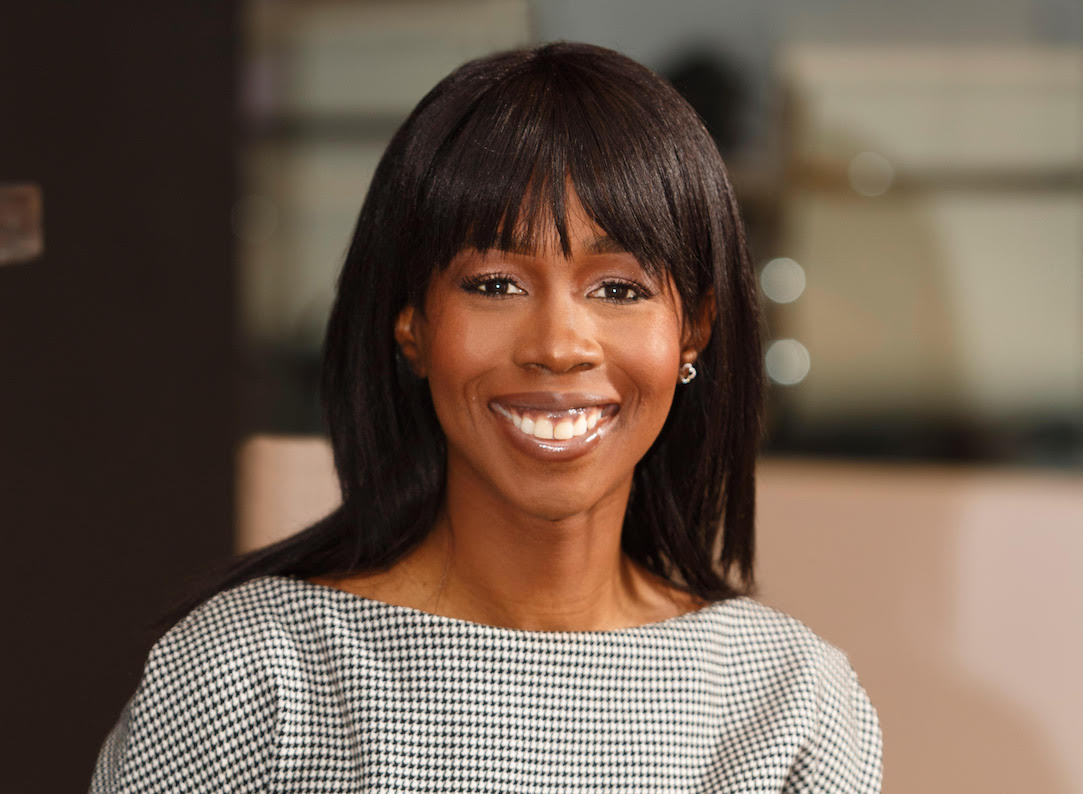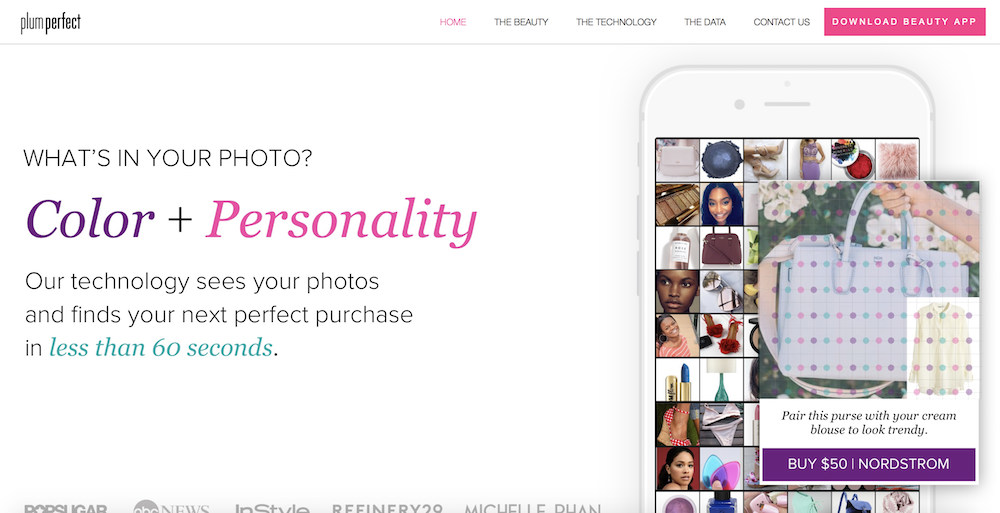
How Asmau Ahmed Is Personalizing Our Internet Experiences
July 13, 2018
Rana Good is the founder of Naïra NYC. A writer for publications such as Forbes, Travel + Leisure, Coveteur, Mens Journal and others, she created her own platform celebrating women of color.
Entrepreneur Asmau Ahmed is on a continual quest to make our lives easier through technology. In 2014 she founded Plum Perfect, an app that allows users to upload an image of themselves in order to receive makeup recommendation hyper-specific to their complexion. While Plum Perfect was partial to the beauty industry, Ahmed, formerly a chemical engineer, wants to innovate how we consume social media, advertising and video content. We caught up with Ahmed to find out what she’s working on next and got some invaluable entrepreneurship advice from her along the way.
You built Plum Perfect to fill a void. What were some of the challenges that you were experiencing as a woman of color to find beauty products?
Asmau Ahmed: I built Plum Perfect for multiple reasons, most of all my desire to innovate. Beauty was one of the problems that I wanted to solve, but I saw a larger universal issue. Plum Perfect was initially built to be a visual search engine; I saw that we were all finding more products online, and that a lot of women and men loved beauty and fashion but didn’t really have the time to find look for things that matched their taste. The idea for Plum Perfect was to take a photo of an item, then we would analyze it and scour web inventories of our partner retailers to find a perfect match for you. It wasn’t only beauty, there was also fashion and home décor. I’m not, contrary to popular belief, much of a beauty aficionado. As a woman of color, I obviously experienced not being able to find the right beauty products. But my dreams are built on a lot more than beauty and I hope that our technology can be utilized across multiple platforms in the near future.

What are some of the platforms that are not beauty or fashion you would like to explore?
I think technology has a strong play in advertising and social media. We can scan your social media if you give us permission, and we’ll be able to target you with items. Maybe it can be used in another industry at some point, perhaps for authentication. Currently we’re also looking at video content and tutorials and how to make those shoppable, with a twist that’s personalized to you. For example, if you’re watching a video, we would show you what products you need to wear to achieve a similar look for your skin tone.
That’s exciting. I read that you were working on a project related to YouTube. Can you tell me more about that?
We have something in beta mode right now, it’s called BeauTV. We’re onboarding influencers and retailers right now and hopefully we’ll be shipping it out on the market soon. We’re looking for influencers with medium to large followings who create makeup tutorials. The incentive for them is that they get to make their content shoppable and can earn much from the sales originating from their video.
How does the Internet make it easier for people to access products in ways that they haven’t been able to in the past?
With technology and more recently machine-learning, personalization of everything is a lot easier. The Internet has been around forever but now people are able to access content that is personalized to them. Obviously there are privacy issues but I think we can control that. With our technology what we’re always looking at is color and visual content, not necessarily personal information.
I read that you’re one of only 12 black women to have raised more than one million dollars in funding. What do you think got you there and what tips do you have for aspiring entrepreneurs who want to follow your lead?
I would say, as a black woman, I think that we tend to be invisible and society’s expectations of us tend to be lower than others. I’ll start by saying don’t let anyone’s expectation deter you from your goal and your ambition. Going to work, you’re not a black woman, you’re a person that wants to do whatever it is that you desire to do. I wanted to become the CEO of a successful company and that’s exactly what I did. I was head to head with everybody, didn’t have a cloud over me, and couldn’t care less what anybody else thought. I went into every meeting and worked just as hard – you let your potential speak for itself. I would let my resume speak for me before I went into meetings so that people formed an opinion before my skin color came into play. There was really no magic, I built a product that was compelling and did the homework that I needed to do to get my funding. Now there are a lot more funds that recognize black women-owned business. There are people that are willing and able to get you in the right room with the right people and provide you with the right resources.
Do you think representation is shifting for the better and what would you like see in the future?
I think there’s definitely a lot of room for improvement – we’re just touching the tip of the iceberg here. There is progress and conversations that are happening but if you look at the statistics, how much money women of color are earning compared to white women or black men or white men, we’re still at the bottom of the totem pole. When the rubber meets the road, if any of us were going to raise funding today we would have a really tough time. We would still have a tougher time than a white woman entrepreneur. Until we represent race and gender fully as we live in society, the conversation still needs to happen and actions still need to happen.
What can your customers and followers expect to see next from Plum Perfect and you?
From Plum Perfect you can expect continued innovation. We started out doing something that was never done before in the beauty industry and that’s what we’re going to continue to do. We’re kind of the rebels — trying to do something different, something that actually resonates with the customer. For me, my own goal is to own a portfolio of several business technologies, Plum Perfect is just the first one.